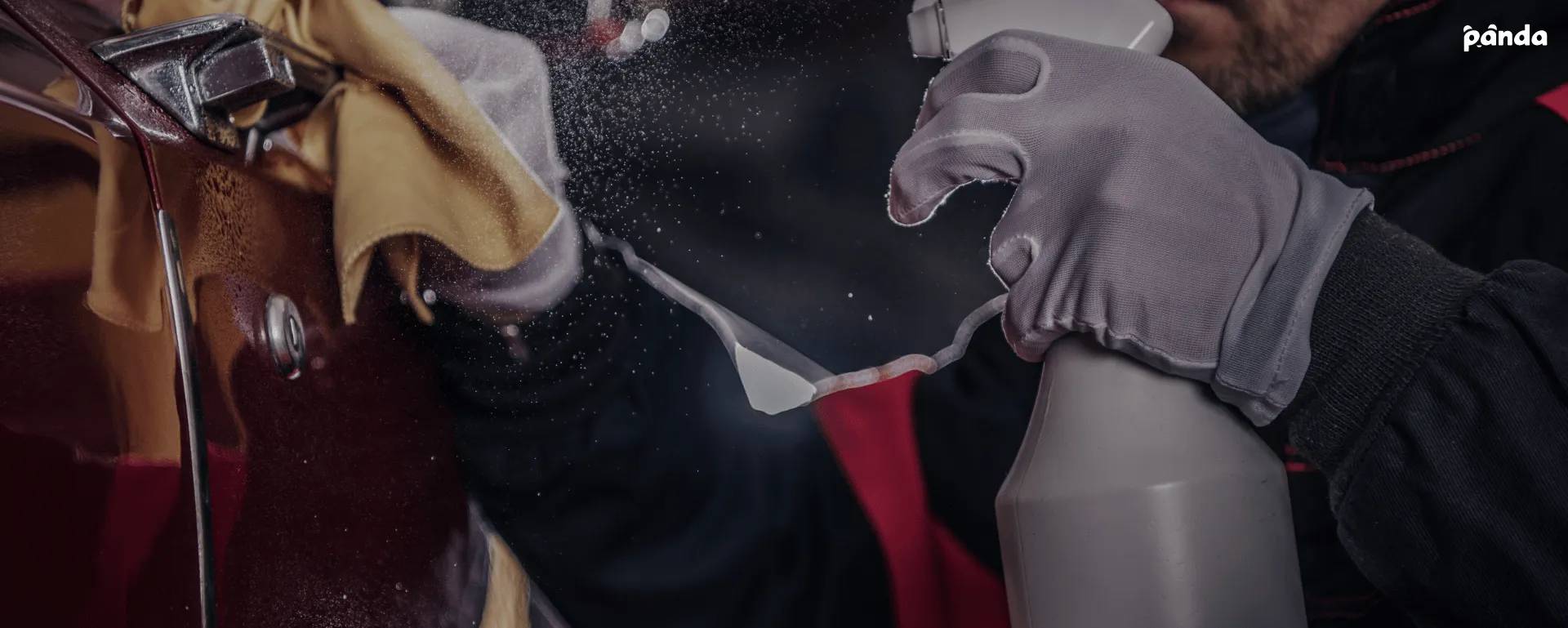How to Stop Rust on a Car: Car Rust Guide
Prevent and stop rust from spreading on your car with these expert tips. Learn how to protect your vehicle, prevent rust formation, and maintain its value.

Written by:
Parham Koukia
Reviewed By:
Editorial Team
Published: March 31, 2025
Updated: October 09, 2025
Use AI to summarize this article:
Car rust is caused by metal oxidation, a chemical reaction that occurs when iron in the car’s body panels comes into contact with moisture and oxygen. In many regions, especially where road salt is used during winter, the rusting process accelerates significantly.
Common Areas Where Rust Develops
Rust on a car often appears in areas that collect moisture or road debris. These include:
- Inner wheel wells
- Rocker panels
- Undercarriage
- Bottom edges of doors
- Around chipped paint or exposed bare metal
How to Stop Rust on a Car Before It Starts
Keep Your Car Clean and Dry
Dirt traps moisture. Regularly wash your car, especially the undercarriage and lower panels, to reduce the chances of moisture accumulation.
Use a microfiber towel to dry car exterior areas like the hood seams and trunk edges where water tends to linger.
Apply Wax to Protect the Paint
Wax creates a barrier between your car's clear coat and the environment. Applying wax after every wash helps shield the paint from moisture and road salt. Pay special attention to door sills and lower bumpers, which are more prone to contact with contaminants.
Protect the Undercarriage
Consider underbody sprays or scheduled rustproofing treatments that coat exposed metal with inhibitors designed for long-term protection.
Rust Prevention Sprays
Sprays formulated with rust inhibitors are ideal for high-risk zones such as the wheel wells, suspension mounts, and inner fenders. Apply before the winter season or after any deep cleaning.
Keep the Car Covered When Possible
If you don’t have access to a garage, a breathable car cover is better than leaving your car exposed to the environment. Avoid plastic tarps, which can trap condensation. If you must park outdoors, avoid areas with poor drainage, like gravel or grass.
How to Stop Rust from Spreading on a Car
Identify the Early Signs of Rust on Car Panels
Early signs of rust on a car look like bubbles under the paint, small orange or brown spots, or flaking metal. These are often found behind the wheels, near the gas tank flap, or along the edges of the hood.
Sand and Seal Bare Metal or Minor Rust Spots
Use medium-grit sandpaper to remove rust and expose clean metal. The area needs to be free from all oxidation before any treatment is applied.
Once clean, apply a rust converter or primer, followed by matching automotive paint and a clear coat.
When to Use Rust Converters vs Rust Inhibitors
Rust converters chemically neutralize oxidation(turns iron oxide into a stable black layer) and prepare the surface for repainting. Inhibitors, however, are better suited for protecting areas not yet rusted but are vulnerable due to environmental exposure.
Repairing Paint Chips, Scratches, and Exposed Metal
Use automotive touch-up paint on any chips or scratches that reveal the underlying metal. Finish with a clear coat to seal the paint and prevent moisture from entering.
Allow each layer to cure fully before applying the next, as even a small exposure can allow water and oxygen to interact with the metal, initiating corrosion.
When to Seek Professional Rust Repair Services
If rust has spread to structural components like cross-members or suspension mounts, DIY solutions might not work anymore, and frame integrity may be compromised in these cases. A professional can assess whether patching is enough or if panel replacement is necessary.
Auto body repair shops also have access to tools like plasma cutters and spot welders, which ensure precise repair without weakening the surrounding metal.
Related Article: What is Iron Decontamination
DIY Rust Repair: Tools, Products, and Steps
What You’ll Need to Repair Rust at Home
- Sandpaper (varying grits)
- Rust converter
- Automotive primer
- Color-matched paint
- Clear coat
- Masking tape and plastic sheeting
Step-by-Step: How to Remove Light Rust from a Car Safely
- Mask off the rusted area to prevent overspray.
- Sand away rust until only clean metal remains.
- Apply rust converter and let it cure.
- Prime the area and allow it to dry.
- Add thin coats of paint, letting each layer cure fully.
- Finish with a clear coat and polish once dry.
Recommended Rust Repair Products
Look for products specifically designed for automotive use.
Rust-Oleum and POR-15 are widely used for frame and underbody protection.
Scotty Kilmer, an automotive mechanic with 50 years of experience and a content creator, recommends using rust prevention coatings on the car’s underside, especially in regions with high humidity or where salt is used heavily on roads. One product he mentions is Rust Bullet, which bonds well to slightly corroded surfaces and offers long-term protection.
💡Pro Tip: Avoid heavy rubberized coatings unless you're confident they won't trap moisture. For touch-up paint, always match the manufacturer’s color code and test in a small spot before full application.
How Much Does It Cost to Repair Rust
DIY solutions can cost under $100 if you already have the tools and experience.
In contrast, professional rust repairs, especially involving body panel replacements, may run between $300 to $1,000 or more, depending on the severity.

Parham Koukia
Lead Car Detailer / Operations Manager
With nearly 15 years of hands-on detailing experience, Parham has become a trusted authority in the auto care world. His work is regularly spotlighted in leading outlets like CNN, GoBankingRates, and Family Handyman. Parham likes to share his knowledge to offer in-depth tips on equipment selections, seasonal car care, and some secret car cleaning tips used by detailers in the real world!
Read more
